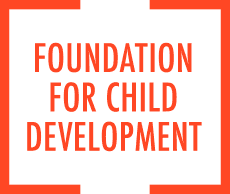All Resources Resources (cont'd)
Page 20 of 39
- Ladders of Learning: Fighting Fade-Out by Advancing PK-3 Alignment
This Issue Brief published by the New America Foundation Education Policy Program, argues that alignment of standards, curriculum and assessment from Prekindergarten through Third Grade can reduce fade-out and improve academic achievement.
June 17, 2010 • Read MoreBuilding a 21st Century Economy: The Case for Investing in Early Education ReformNew America Foundation makes the case for PK-3. This is the first of a series of papers to define a PK-3 agenda in advance of NCLB reauthorization.
June 17, 2010 • Read MoreWho’s Left Behind? Immigrant Children in High- and Low-LEP SchoolsSeventy percent of LEP students in kindergarten through fifth grade are enrolled in only 10 percent of the country’s public elementary schools.
June 17, 2010 • Read MoreJuly/August 2005 Issue of the Harvard Education Letter Dedicated to PreK-3Deborah Stipek writes on Early Childhood Education at a Crossroads.
June 17, 2010 • Read MorePK-3: An Aligned and Coordinated Approach to Education for Children 3 to 8 Years OldThis Social Policy Report summarizes the research basis for the PreK-3rd approach.
June 17, 2010 • Read MoreTesting Goes to PreschoolWill state and federal testing programs advance the goal of school readiness for all children?
June 17, 2010 • Read MoreJournals Publish Two Evaluations of the Tulsa, OK Prekindergarten ProgramResearch on Tulsa, Oklahoma’s universal PK program finds that the PK experience enhances the school readiness of young children.
June 17, 2010 • Read MoreLosing Ground in Early Childhood Education: Declining Workforce Qualifications in an Expanding Industry, 1979-2004Since the early 1980s, there has been a large dip in the qualifications of the center-based early childhood workforce nationwide.
June 17, 2010 • Read MoreSign up for The Learning Curve
Stay up-to-date with the latest resources and insights coming from the Foundation for Child Development and its colleagues. We do not share or sell email addresses or any other information collected to outside parties. We will use your email address only to send you relevant content, and you can unsubscribe at any time.
